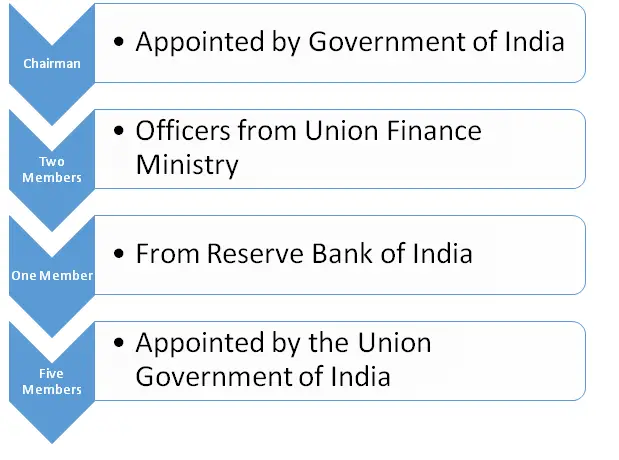Understanding SEBI (Securities and Exchange Board of India) and its Vital Role in Indian Capital Markets

The world of investing and trading in the Indian stock market can be both thrilling and daunting. Behind the scenes, ensuring that this market operates fairly, efficiently, and transparently is the Securities and Exchange Board of India, commonly known as SEBI. Let’s dive into what SEBI(Securities and Exchange Board of India) is all about and how it’s navigating the current landscape of the Indian capital markets.
What is SEBI(Securities and Exchange Board of India)?
SEBI(Securities and Exchange Board of India) is the regulatory body tasked with overseeing the securities market in India. Formed in 1988, it was given statutory powers on April 12, 1992, through the SEBI Act, 1992. Essentially, SEBI acts as the watchdog for investors and market participants, ensuring integrity and fairness in the securities markets.
Roles and Responsibilities of SEBI(Securities and Exchange Board of India):
Regulatory Oversight:
SEBI’s primary role is to regulate the functioning of stock exchanges, ensuring they adhere to the rules and regulations laid down by SEBI. This involves overseeing various entities like brokers, merchant bankers, and mutual funds to maintain market integrity.
Protecting Investor Interests:
One of SEBI’s crucial functions is safeguarding the interests of investors. It achieves this through measures like mandating disclosure requirements, ensuring fair practices, and investigating any malpractices or frauds that may harm investors.
Promoting Fair and Transparent Market:
SEBI(Securities and Exchange Board of India) works towards creating a level playing field for all participants in the securities market. It formulates regulations to prevent insider trading, market manipulation, and fraudulent activities, thus promoting transparency and fairness.
Developing the Market:
SEBI plays an active role in developing and regulating various segments of the securities market, including equity, debt, derivatives, and commodities. It introduces reforms and initiatives to enhance market efficiency, liquidity, and investor confidence.

Educating Investors:
SEBI(Securities and Exchange Board of India) aims to educate investors about market risks, investment opportunities, and regulatory frameworks. It conducts investor awareness programs and campaigns to empower investors with knowledge and enable informed decision-making.
SEBI’s Role in the Current Situation of Indian Capital Markets:
The Indian capital markets have witnessed significant growth and evolution over the years, presenting both opportunities and challenges. In the current scenario, SEBI is playing a pivotal role in ensuring stability, resilience, and investor protection amidst dynamic market conditions.
Market Surveillance and Regulation:
With the rapid evolution of technology and complex financial instruments, SEBI continuously monitors market activities to detect and deter any instances of market abuse or manipulation. It implements robust regulatory frameworks to maintain market integrity and stability.
Adapting to Technological Advances:
SEBI(Securities and Exchange Board of India) acknowledges the importance of embracing technological advancements to enhance market efficiency and accessibility. It has introduced measures like electronic trading platforms, dematerialization of securities, and algorithmic trading regulations to keep pace with global standards.
Promoting Corporate Governance:
SEBI(Securities and Exchange Board of India) lays emphasis on strengthening corporate governance practices to protect investor interests and maintain market credibility. It formulates guidelines for corporate disclosure, transparency, and accountability, thereby fostering investor confidence.

Encouraging Innovation and Market Development:
SEBI(Securities and Exchange Board of India) fosters innovation and diversity in the securities market by introducing new products, facilitating market infrastructure development, and promoting alternative investment avenues. This helps in catering to the evolving needs of investors and enhancing market depth.
Investor Protection Initiatives:
In light of market volatility and uncertainties, SEBI(Securities and Exchange Board of India) remains committed to protecting investor interests through stringent regulations, investor awareness programs, and timely interventions. It ensures that investors are equipped with the necessary information and resources to make informed investment decisions.
In essence, SEBI’s proactive approach and regulatory interventions are instrumental in shaping the Indian capital markets into a robust, transparent, and investor-friendly ecosystem. By promoting integrity, fairness, and innovation, SEBI(Securities and Exchange Board of India) continues to uphold the trust and confidence of investors while fostering the growth and development of the securities market in India.
Understanding the Role of SEBI: Safeguarding Investors and Regulating Markets
In the dynamic world of finance, where markets can be volatile and investments risky, having a regulatory body is crucial to maintain stability and protect investors. The Securities and Exchange Board of India (SEBI) is the primary regulatory body tasked with overseeing the securities market in India. Let’s delve into the establishment and functions of SEBI(Securities and Exchange Board of India), understanding its pivotal role in shaping the investment landscape.
Establishment of SEBI(Securities and Exchange Board of India):
| Year| Event |
| 1988 | SEBI(Securities and Exchange Board of India) was established on April 12, 1988, as per the recommendations of the Narasimham Committee. |
Functions of SEBI:
SEBI(Securities and Exchange Board of India) operates with a wide array of functions aimed at promoting fair and transparent securities markets while safeguarding the interests of investors. Here’s a breakdown of its key functions:

| Function | Description |
| Regulatory Oversight | SEBI( regulates stock exchanges, brokers, merchant bankers, and other intermediaries to ensure compliance with regulations and promote fair practices. |
| Protecting Investor Interests | One of SEBI’s primary mandates is to safeguard the interests of investors by ensuring adequate disclosures, preventing fraudulent activities, and promoting investor education. |
| Monitoring Market Manipulation | SEBI(Securities and Exchange Board of India) monitors market activities to detect and prevent market manipulation, insider trading, and other fraudulent practices that could undermine market integrity. |
| Promoting Market Development | SEBI(Securities and Exchange Board of India) plays a crucial role in promoting the development of the securities market by introducing new products, facilitating innovations, and encouraging broader market participation. |
| Enforcing Legal Framework | SEBI(Securities and Exchange Board of India) enforces securities laws and regulations by imposing penalties, issuing warnings, and taking corrective actions against entities found violating the established norms. |
| Educating Investors | Through various initiatives, SEBI(Securities and Exchange Board of India) aims to educate investors about market risks, investment opportunities, and best practices to make informed investment decisions. |
| Regulating Insider Trading | SEBI(Securities and Exchange Board of India) regulates insider trading by imposing strict disclosure requirements on insiders and enforcing penalties for unauthorized trading based on non-public information. |
| Ensuring Market Transparency | SEBI(Securities and Exchange Board of India) mandates transparency in market operations by requiring companies to disclose financial information, corporate governance practices, and other material developments. |
| Regulating Takeovers and Mergers | SEBI(Securities and Exchange Board of India) regulates takeovers and mergers through the Takeover Code, which ensures fairness, transparency, and protection of minority shareholders’ interests during such transactions. |
| Developing Code of Conduct | SEBI(Securities and Exchange Board of India) formulates and enforces a code of conduct for various market participants to maintain integrity, fairness, and professionalism in their dealings within the securities market. |

Conclusion:
In essence, SEBI(Securities and Exchange Board of India) serves as the guardian of India’s securities market, ensuring that it operates efficiently, fairly, and transparently. By establishing and enforcing robust regulations, SEBI(Securities and Exchange Board of India) fosters investor confidence and contributes to the growth and stability of the Indian economy. Understanding SEBI’s establishment and functions is vital for investors and market participants alike, as it empowers them to navigate the complex world of finance with greater assurance and clarity.